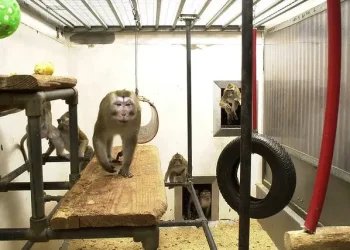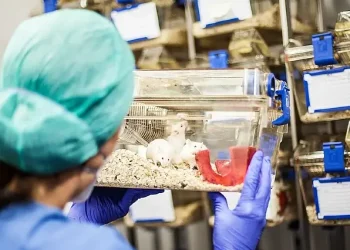The UK government has announced sweeping changes to animal welfare rules for zoos and aquariums, introducing new Standards of Modern Zoo Practice.
These reforms, effective from May 2025, aim to enhance animal care by mandating larger enclosures and prohibiting visitor handling of certain species, reflecting the UK’s commitment to leading global animal welfare standards.
Transforming Animal Welfare in Zoos
The UK government’s recent overhaul of zoo and aquarium standards marks a significant shift in how these institutions operate.
The new regulations require larger habitats for elephants, ending the long-term tethering of birds of prey, and banning visitor interactions with fish and cephalopods.
These changes are designed to improve animal welfare by creating environments that more closely mimic natural habitats.
Visitor Experience Enhancements
- Elephants will enjoy larger enclosures that replicate their natural territories.
- Birds of prey will be housed in spacious aviaries instead of being tethered.
- Aquariums will prohibit visitor handling of intelligent species like octopuses.
- New safety measures for dangerous animals will be implemented.
- Conservation record-keeping requirements will be enhanced.
Implications for Zoos and Visitors
The introduction of these new standards is expected to have a profound effect on both zoos and their visitors.
While some smaller or less well-funded institutions may face financial challenges adapting to these requirements, the overall impact is anticipated to elevate the UK’s reputation as a leader in animal welfare.
Visitors can expect improved experiences with more naturalistic exhibits and enhanced educational opportunities about conservation efforts.
A Global Benchmark for Animal Care
This reform positions the UK as a global leader in zoo practices, potentially influencing international standards.
By setting higher benchmarks for animal care, the UK encourages other countries to follow suit, fostering global collaboration in wildlife conservation.
This move could also attract international tourists seeking ethical wildlife experiences, boosting the UK’s tourism sector.
Industry Reactions
The response from industry leaders has been overwhelmingly positive. Organizations such as BIAZA and major zoos like Chester Zoo have praised the reforms as a step forward in ensuring world-class animal care.
They view this as an opportunity to reinforce their commitment to conservation and education while setting an example for other nations to emulate.
Additional Reading
Bottom Line
The UK’s updated zoo standards represent a pivotal moment in advancing animal welfare practices globally. By prioritizing ethical treatment and conservation efforts, these reforms not only enhance visitor experiences but also set a precedent for other countries.
Over the next two years, British zoos and aquariums will be closely watched as these changes are implemented.
Discover more of More of Todays Top Breaking Government News Stories!
Sources: UK Government, Independent, UFAW, Department for Environment, Food & Rural Affairs and Baroness Hayman of Ullock.
Prepared by Ivan Alexander Golden, Founder of THX News™, an independent news organization delivering timely insights from global official sources. Combines AI-analyzed research with human-edited accuracy and context.









